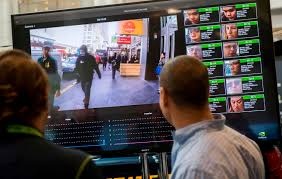Legislation that would begin to regulate the use of facial recognition technology in the United States’ most populous city could soon be made into law. While cities around the country move to ban facial recognition and other types of biometric surveillance outright, the City Council here is taking a piecemeal approach, considering bills that would require businesses and landlords to disclose their use of the technology.
Meanwhile, privacy advocates are pushing for oversight of how facial surveillance is used by the city’s police department, which has been resistant to more transparency despite revelations that it maintains a facial database that includes thousands of children, some as young as 11.
The situation in New York mirrors the national debate over technology that supporters say is a key crime-fighting tool but that critics have dubbed Orwellian by its very nature. Caught in the middle are local governments, which must work out whether to ban the tools entirely, as San Francisco has done, or take a more restrained approach. “I would caution legislators to tread carefully rather than going too far,” City Councilman Ritchie Torres, who has introduced a bill that would require business owners to notify customers if facial recognition tools are in use. “There are legitimate concerns but we should not allow those concerns to become a massive failure of legislative overreaction.”
Torres says “it could be the case that facial recognition technology has real utility,” but not without standards for privacy and transparency. To that end, Torres’ bill would require businesses using facial recognition to make clear how long they are storing the information they gather and whether it’s being sold to any third parties.
A second bill under consideration by the council would force property owners to register use of facial recognition and other biometric surveillance tools with the city, and require the city to maintain a database of all the buildings using it — something it currently lacks. “A lot of these biometric surveillance systems can be added to the back end of existing camera systems, making it impossible for a customer, a tenant or a passerby to know that their biometric information is being captured without some sort of disclosure,” says Albert Fox Cahn, who runs the Surveillance Technology Oversight Project at the Urban Justice Center, which fights for privacy rights in New York.








